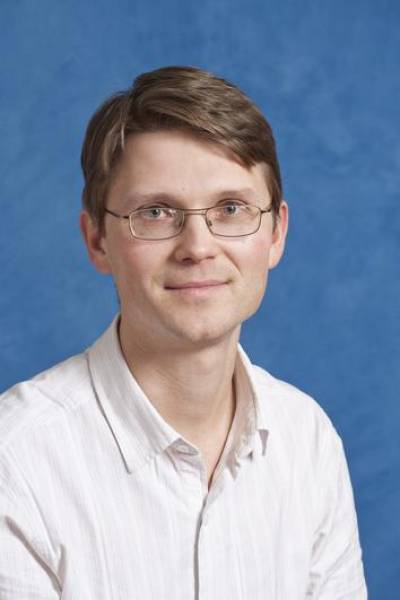Postdoctoral Research Associate and Teaching Fellow
Sergey Martynov received his MSc in Technical Physics from Moscow Power Engineering Institute (Technical University) in 1998. He then worked for several years as an Engineer at the Institute of High Temperatures of the Russian Academy of Sciences in Moscow. He then studied hydrodynamic cavitation in fuel injectors at the University of Brighton (UK) from which he obtained his PhD in 2005. Sergey’s current research interests are in the field of modelling and simulation of various flow phenomena encountered during normal operation and accidental failure of pressurised pipelines transporting supercritical and dense-phase CO2 fluid in Carbon Capture and Sequestration (CCS) projects.
Research
Research projects
FP7 Project CO2QUEST "Techno-economic Assessment of CO2 Quality Effect on its Storage and Transport" (http://www.co2quest.eu/)
In CO2QUEST collaborative project mathematical models and experimental methods are applied to identify the important CO2 mixtures that have the most profound impact on the different parts of the CCS chain. These include the pipeline pressure drop and compressor power requirement, pipeline propensity to ductile and brittle facture propagation, corrosion, geochemical interactions within the storage site, and the ensuing health and environmental hazards. Based on a cost/benefit analysis and a whole system approach, the results are in turn employed to provide recommendations for CO2 purification levels, mixing protocols and control measures for pipeline networks and storage infrastructure thus contributing to the development of relevant standards for the safe design and economic operation of CCS.
As a part of CO2QUEST project, the effects of variations in temperature, flow rates and amount of impurities in CO2 streams captured from various industries, on the thermodynamic state of the transported fluid and compression requirements for the CO2 pipeline transmission network are been investigated using purpose-built computational models.
To accurately predict scenarios of CO2 pipeline failure involving running fractures, a transient fluid-structure interaction model is developed in collaboration with the CO2QUEST industrial and academic partners. To simulate the crack propagation in high-pressure transportation pipelines, an accurate multiphase outflow model developed at UCL is coupled with the physically-substantiated model of ductile/brittle failure of the pipe steel.
UKCCSRC project "The Development and Demonstration of Best Practice Guidelines for the Safe Start-up Injection of CO2 into Highly-Depleted Gas Fields"
The most cost effective way of transporting the captured CO2 for subsequent sequestration using high pressure pipelines is in the dense phase at pressures greater than 73 bar. Given the substantially lower pressures at the well head, the injection of the CO2 into the well will be accompanied by expansion cooling to temperatures as low as -70 oC. This process leads to several risks including:
• blockage due to hydrate and ice formation following contact of the cold CO2 with the interstitial water around the well-bore and the formation water in the perforations at the near well zone
• thermal stress shocking of the well bore casing steel leading to its fracture and escape of CO2
• over-pressurisation accompanied by CO2 backflow into the injection system due to the violent evaporation of the superheated liquid CO2 upon entry into the well bore.
To advise pipeline operators on the safe and economically efficient strategy of CO2 injection into depleted gas reservoirs, a phenomena of transient flow evolving in an injection well during the beginning of CO2 injection is investigated using numerical multiphase flow models.
Supervisor: Prof Haroun Mahgerefteh
Research interests
• Mathematical modelling of transient multi-phase flows in pipelines
• Quantitative risk assessment using CFD models
• Dynamics of ultrasound contrast agent micro-bubbles
• Breakup and atomisation of liquid sprays
Teaching interests
• Supervising and mentoring MSc and MEng students on the research and design projects.
• Organising and running MSc research project progress presentations.
• Thesis writing lectures and workshops taught to the final year MSc students.
• Teaching ‘Introduction to Safety and Risks in the Process Industries’ to undergraduate students.
Modules taught:
• CENGG099: MSc Research Project
• CENGM001: Research Project
• CENGG098: MSc Design Project
• CENG3006: Process Plant Design I
• ENGS102P CENG: Design & Professional Skills (Chemical Engineering)
Education
2005: Ph.D., University of Brighton
1998: M.Sc. in Physics, Moscow Power Engineering Institute
1996: B.Sc. in Physics, Moscow Power Engineering Institute
 Close
Close


